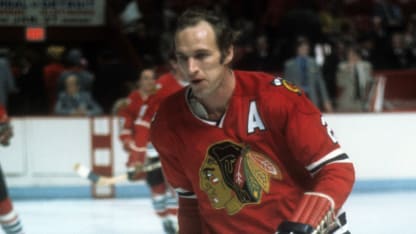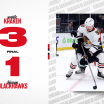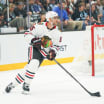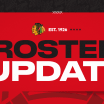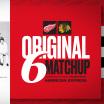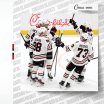That team created history by vaulting from a last-place finish in 1968-69 to first, a surge made possible by several factors: 15 shutouts from rookie goalie Tony Esposito, energy brought to Chicago by other first year players such as Keith Magnuson and Cliff Koroll, and a tidy defensive posture espoused by Head Coach Billy Reay. The Blackhawks surrendered 76 fewer goals than in the previous season -- exactly one per game -- and won the East Division on the dramatic last night of the regular schedule.
White participated in six consecutive NHL All-Star Games from 1969 to 1974 and was named to the NHL Second All-Star team in 1972, 1973 and 1974. White could have graduated to the NHL before he did, but for five seasons he toiled under the stringent Eddie Shore, who operated the AHL Springfield Indians. Ivan tried to pry White loose on a couple of occasions, but Shore resolutely demanded a high price. White later paid homage to Shore, quipping, "I owe a lot to Shore's practices."
White and Stapleton also were quite a pairing in the locker room, where they kept things loose with pranks, banter and a litany of bogus rumors. The two veterans, feigning grief, had the admittedly gullible Magnuson "traded" from the Blackhawks every couple weeks, or so it seemed. But when it was time to play, White and Stapleton were without peer. They were integral to Team Canada's conquest of the Soviet Union in the epic 1972 Summit Series.
When Paul Henderson scored his legendary goal with 34 seconds remaining in the third period of the eighth and deciding contest to effect a 6-5 victory in Moscow, White and Stapleton had already been on the ice for a minute or so. Although exhausted, they stayed there until time expired. Folklore has it that Stapleton fetched the landmark puck at game's end, but he insists that it was White who collected and kept the most famous memento in the annals of Canadian hockey. At the Blackhawks Convention a couple summers ago, White was informed of Stapleton's assertion. Smiling, White intoned, "consider the source." Those two could toy with each other too.
In 1976, Reay was dismissed as coach via a note under his office door. White, Stan Mikita and Bobby Orr were named as replacements, although the injured White got the nominal nod as head coach. When asked what his first move would be in the new assignment, White responded, "I'm going to remove that door from my office."
